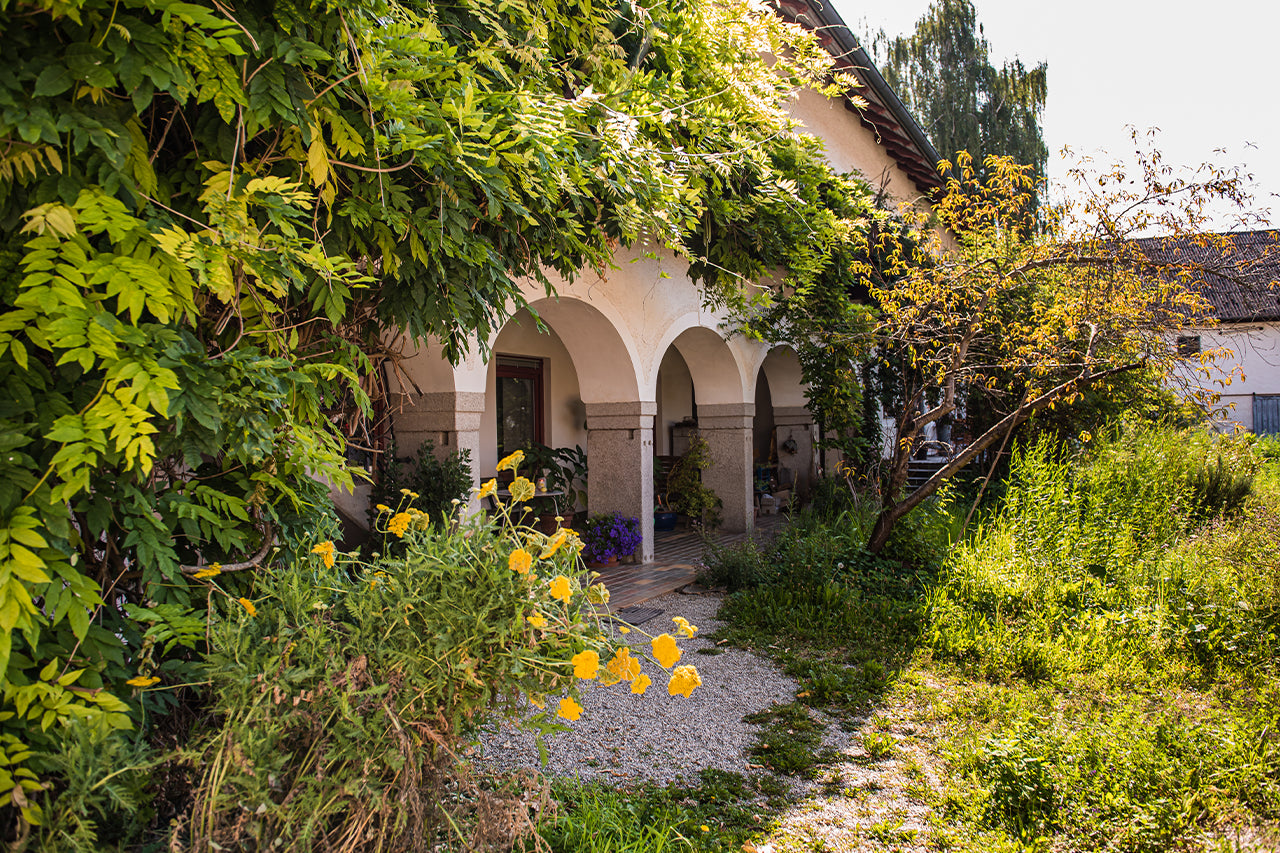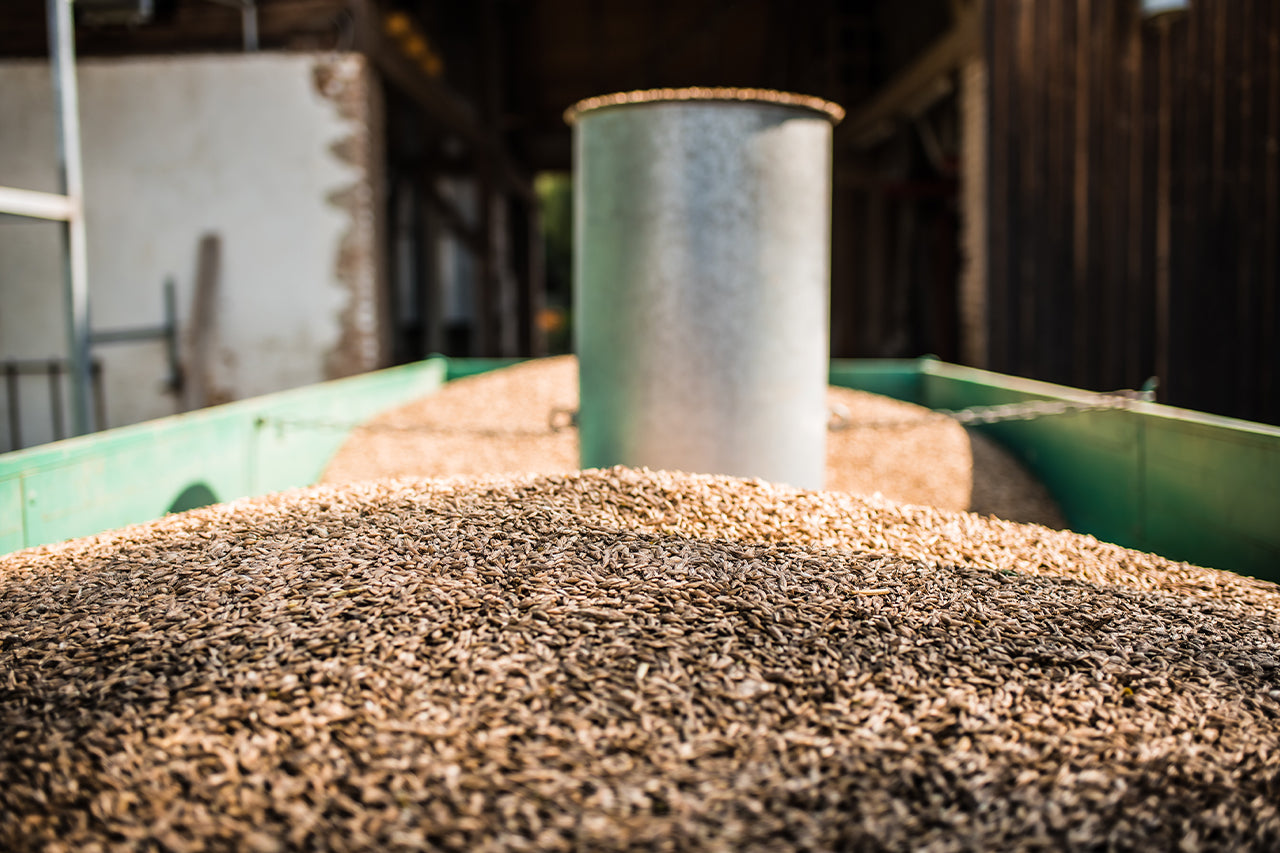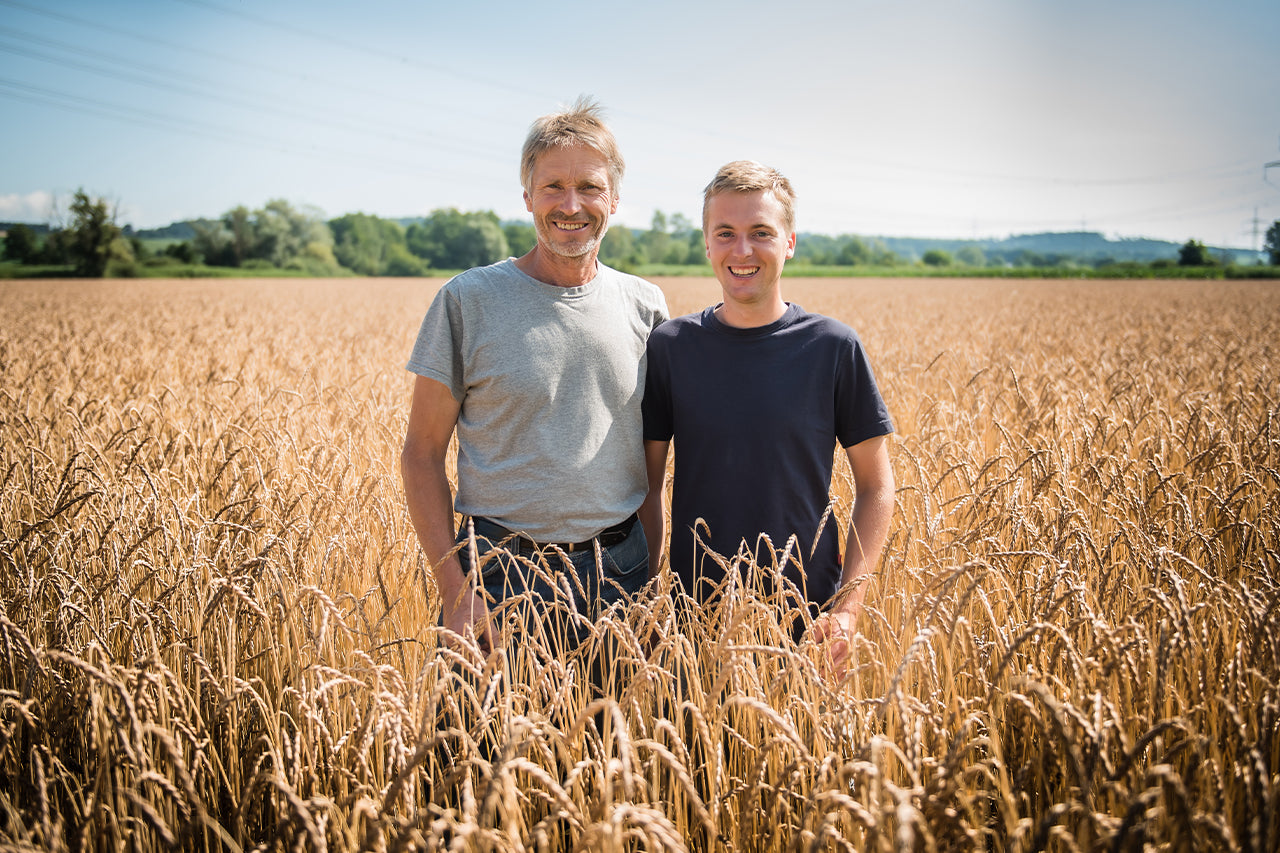Jahrstorfer Hof is located a good 60 km northeast of Barnhouse in Eichendorf in Lower Bavaria. A real family business - run by father Stefan and son Adrian, who get support from agricultural helpers during the seasonal peaks. They have been members of the BIOLAND cultivation association since 1990. Why organic? "For us, there is no alternative to organic for a sustainable economy," Adrian puts it in a nutshell. "And of course it means quite clearly: Away from chemistry and dependence on corporations!"
The Jahrstorfers grow spelled and oats for Barnhouse. “ We are pleased to have found a regional partner in Barnhouse who pays a fair price.” , the young farmer justifies his commitment. The other products of the farm are very diverse - food for humans and animals. In addition to wheat, peas, field beans, red clover and sugar beets, corn, soya, hemp, flax, onions and sunflowers also grow. Since 1992, the organic farmers have been producing high-quality oil using a cold-pressing screw press.
On the intrinsic value of organically produced food
During the past oat season, the Jahrstorfers repeatedly pulled out the camera and pressed the shutter button while they were working in the fields. In doing so, they have documented how they, as organic farmers, have to work their oat fields in order to keep the weeds under control without using any agrochemicals. This is a wonderful starting point for us to illustrate this aspect of organic farming here. Because that is also a goal of our regional project - to tell about the work of the organic farmer and to make people aware of the value of this work.
Abandoning the use of herbicides makes a lot of additional work necessary. The time of sowing, the quality of the organic manure, the condition of the soil, the type of mechanical weed control - the organic farmer must take all this and much more into account so that the valuable grain can develop optimally - unaffected by weeds. This also makes the original value of organically produced food clear again:
The additional effort in organic farming is an investment in maintaining a healthy nature.
This is how the organic farmer does it: hoeing and weeding – without agrochemicals
As can be seen in the series of pictures below, our partner farmer Adrian keeps the weeds in check on his grain fields by hoeing and weeding - two methods that are typical of organic farming. “When hoeing, the weeds are hoed out between the rows of crops – e.g. oats or spelled – with a blade. A hoeing machine drives between the rows. Another effect of hoeing is that small weeds in the row are shed.” , explains organic farmer Adrian and adds: “When harrowing, the entire surface is worked with fine tines tensioned by springs. The tine pressure is adjusted so that the crop is not damaged, but the weeds, which are even smaller, are combed out.”
And when do you groom – and when do you hoe?
“You can groom even before the culture has blossomed. This is the so-called blind weeding. Here, germinating weeds are controlled while the seed is still further down in the soil. However, weeding only works if the weeds are smaller than the crop or not as hardy. Hoeing is only possible from the 2nd to 3rd leaf stage and takes significantly longer than currying. One hoes to control the weeds between the rows and to shed those in the row. The success rate between the rows is almost 100%. With grooming, on the other hand, the success rate can vary from 30 – 90%.”
Maybe you share our experience: The more we learn about organic farming as part of our regional project, the more the view of our own product changes, which takes on a new value for us. A nice experience…










